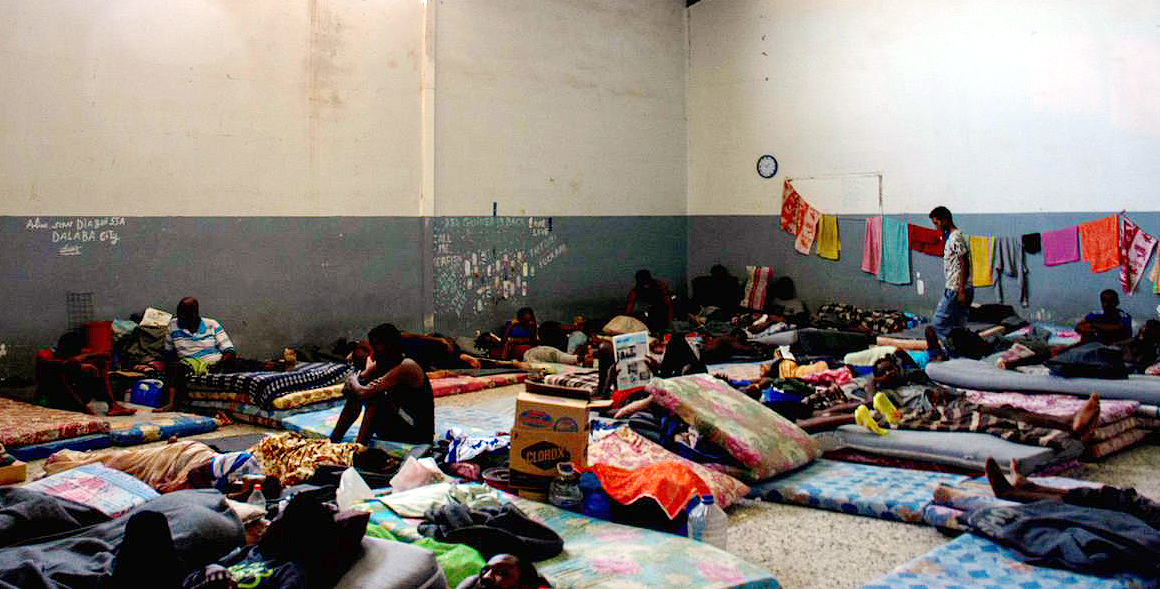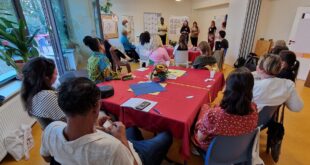The police of North African countries to prevent refugees from crossing the Mediterranean to Europe. EU Interior Ministers and their North African counterparts have agreed. Amnesty sharply criticises agreement.
Europe is also relying on African police to stop refugees crossing the Mediterranean. Germany’s Federal Ministry of the Interior announced in Berlin, the interior ministers of EU countries and North African countries agreed at a video conference on Monday to jointly intensify the fight against people smuggling.
The meeting took place within the framework of the German EU Presidency.
According to the statement, EU participants said it wanted to promote closer cooperation between the African Union Police Cooperation Authority (Afripol) and the EU agencies Frontex and Europol and the European Network of Liaison Officers for Immigration. Training projects and financial aid for technical equipment are also planned within the framework of the partnership.

France, Germany, Italy, Malta and Spain took part in the ministerial conference, as did the EU Commissioners for Home Affairs and European Neighbourhood Policy. On the African side, there were interior ministers from Algeria, Libya, Mauritania, Morocco and Tunisia.
Federal Minister of the Interior Horst Seehofer (CSU) said: “The EU member states share the goal of preventing deaths in the Mediterranean. This includes helping people rescued from distress. At the same time, we have to strengthen the fight against smuggling.”
Cooperation with partners in North Africa is essential for this, he added. This should be further expanded during the German EU Presidency in the coming months, Seehofer said.
There is still no consensus within the EU on how to deal with boat migrants, since only a few EU countries are ready to accept those rescued from distress.
Reacting to the agreement, Amnesty International warned against “outsourcing responsibility for receiving protection seekers”. This is a “farce and often goes hand in hand with human rights violations,” the organisation said.

Julia Duchrow, Vice Secretary-General of Amnesty: “Because not all European countries are ready to accept refugees, North African countries should continue to ensure that refugees do not even reach the EU’s external borders.”Amnesty points out that the previous cooperation with Libya has led to the most serious violations of human rights, because refugees are arbitrarily detained and ill-treated there.
“The training and supply of technical equipment to the Libyan coast guard by Germany and other EU member states means that the Libyan coast guard brings those rescued from distress back into torture and imprisonment. This has to come to an end,” criticizes Duchrow.
READ ALSO Pope Francis compares Libyan migrant detention centres to concentration camps
A lack of a European sea rescue mission has made the escape route across the central Mediterranean the deadliest in the world.
Germany took over the six-month rotating presidency of the Council of the European Union earlier this month and is making migration a main area of focus. The body sets the overall political direction and priorities for the EU, and Germany is focusing on overhauling the EU’s asylum system and strengthening border controls.
Adira Kallo
 THE AFRICAN COURIER. Reporting Africa and its Diaspora! The African Courier is an international magazine published in Germany to report on Africa and the Diaspora African experience. The first issue of the bimonthly magazine appeared on the newsstands on 15 February 1998. The African Courier is a communication forum for European-African political, economic and cultural exchanges, and a voice for Africa in Europe.
THE AFRICAN COURIER. Reporting Africa and its Diaspora! The African Courier is an international magazine published in Germany to report on Africa and the Diaspora African experience. The first issue of the bimonthly magazine appeared on the newsstands on 15 February 1998. The African Courier is a communication forum for European-African political, economic and cultural exchanges, and a voice for Africa in Europe.




























